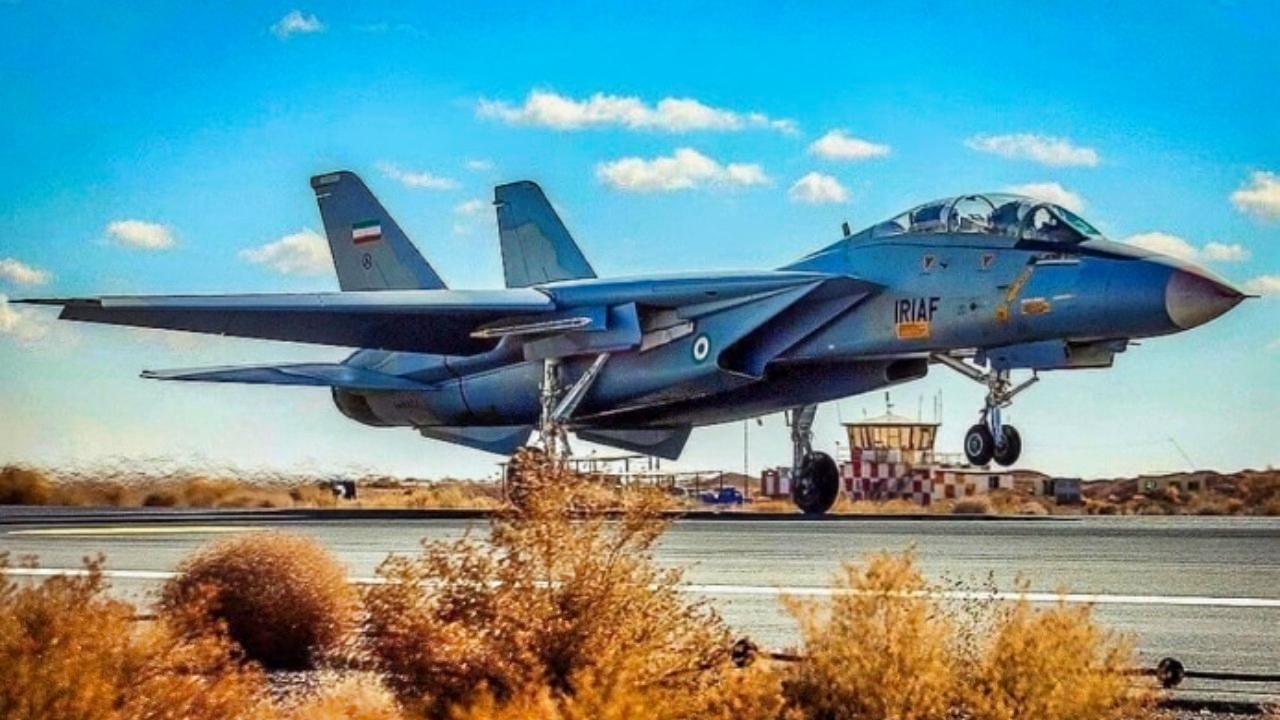PUBLISHED on August 14, 2025, 8:01 AM EDT – Key Points and Summary – Iran’s military chief has warned of a “harsher response” to any new U.S. or Israeli aggression, but Tehran’s capacity to follow through with conventional force is in serious doubt.
-Following the devastating “12-Day War,” Iran’s air defenses remain a weak, patchwork system, and its retaliatory missile strikes were largely ineffective.
-While the rhetoric may be for domestic consumption, this analysis suggests a future “harsher” response would likely take the form of asymmetric or covert attacks, including the potential activation of terrorist sleeper cells, rather than a direct military confrontation Iran cannot win.
Iran Issues New Threat to U.S., Israel – But Tehran Can’t Follow Through
The chief of staff of the Iranian Armed Forces confirmed speculation among analysts this week that Tehran may order a more aggressive response to further strikes by Israeli forces.
During a meeting with General Rudzani Maphwanya, the Chief of the South African National Defence Force, Major General Abdolrahim Mousavi warned Jerusalem and Washington against new aggression.
“The Iranian armed forces are prepared to give a harsher response to any fresh Israeli or U.S. act of aggression,” Mousavi said.
Iran’s Kayhan newspaper reported that the Iranian general said U.S. and Israel are “notorious for reneging on promises” and that Iranian forces would go beyond their largely symbolic retaliatory strikes on the American Al Udeid Air Base in Qatar.
While Iran described its response to U.S. and Israeli strikes as “crushing,” all of the 14 missiles launched at the air base were intercepted.
And while Iran reported more than 1,000 civilian deaths during the 12-Day War, Israel only confirmed 28 fatalities caused by Iranian strikes on its soil.
Kayhan also described how Iranian officials expressed interest in expanding its military cooperation with South Africa. During talks with Iranian Army Major General Amir Hatami, South African officials were praised for their “gallant stances in condemnation of the Israeli and U.S. strikes against Iran.”
The warning comes after U.S. President Donald Trump confirmed that he would be willing to launch new strikes against Iran should the regime continue efforts to rebuild its nuclear program – and as an end-of-August deadline for a new nuclear deal rapidly approaches.
Analysts warn that Israel, meanwhile, is likely to initiate new strikes against Iran before the end of the year.
Can Iran Really Pull It Off?
As this outlet noted earlier this week, Tehran would face substantial obstacles before it could mount any credible large-scale strike against U.S. or Israeli forces. The most immediate challenge lies in its air defense network – a patchwork of older domestic and imported systems, many of which were damaged or destroyed during the 12-Day War.
Replacement batteries have largely come from reserve stockpiles rather than procurement of more modern systems, leaving Iran with the same vulnerabilities that were exploited in previous strikes. And with little time to acquire or integrate more advanced air defense systems from the likes of Russia or China, Iran remains acutely exposed to retaliation should it decide to escalate.
Given these constraints, it’s possible that a “harsher” Iranian response may not take the form of conventional strikes. Instead, Tehran could opt for deniable or asymmetric attacks designed to impose costs or damage without inviting overwhelming counterstrikes – but even then, it’s a gamble. Asymmetric attacks could include targeted cyber operations against critical infrastructure, yet more harassment of commercial shipping vessels in the Red Sea and Gulf of Aden, or the activation of regional proxy militias. Perhaps the most serious of Iran’s options, however, is the possibility of covert action on American soil.
The idea that Iranian-aligned operatives are already positioned inside the United States has been a long-standing worry among Western analysts. In July, former FBI special agent Jonathan Gilliam told Fox News that terrorist sleeper cells could be “in plain sight.”
“And that’s the real terrifying part of this is that putting people in place, as we’ve seen over the past four years, everyone’s scrambling because certain amounts of people could come in here and get in here,” Gilliam said.
For now, Tehran’s aggressive rhetoric serves largely as a domestic tool, and likely won’t move the needle in terms of deterring Israel from future strikes. Without addressing its air defense shortcomings and aging air fleet, it’s hard to see how Iran can follow through on its threats with sustained, effective, and damaging conventional military action.
About the Author:
Jack Buckby is a British author, counter-extremism researcher, and journalist based in New York. Reporting on the U.K., Europe, and the U.S., he works to analyze and understand left-wing and right-wing radicalization, and reports on Western governments’ approaches to the pressing issues of today. His books and research papers explore these themes and propose pragmatic solutions to our increasingly polarized society. His latest book is The Truth Teller: RFK Jr. and the Case for a Post-Partisan Presidency.
Military Matters
The F-22 Raptor Just Keeps Getting Better
The YF-23 Black Widow II Stealth Fighter: The New F/A-XX
The F-117 Nighthawk: We Almost Touched It
